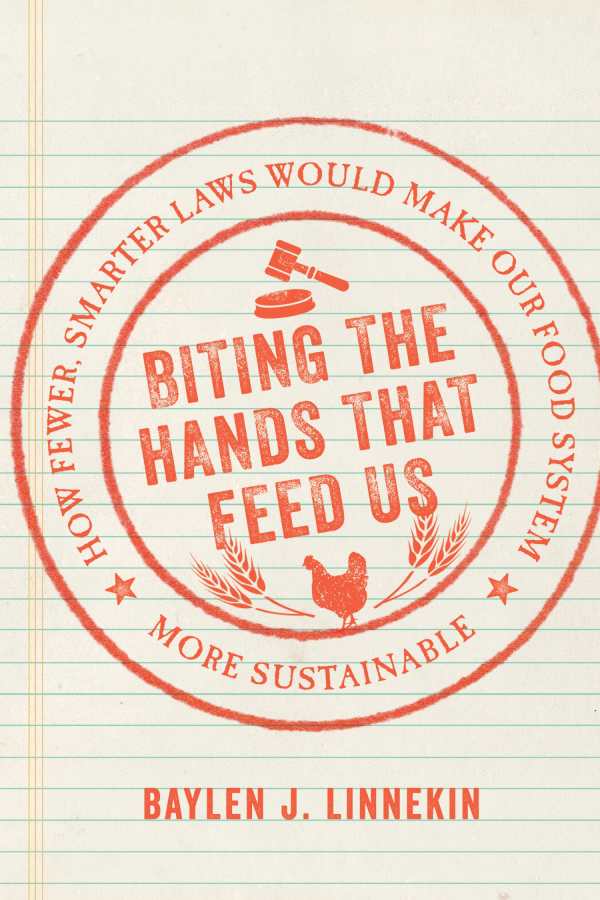Biting the Hands that Feed Us
How Fewer, Smarter Laws Would Make Our Food System More Sustainable
Promoting a libertarian take on the regulation of organic food, this engaging book presents a fresh perspective on a popular topic.
According to Biting the Hands that Feed Us, food production regulation is an unfortunate fact of life for farmers and restaurateurs. Rules about saleable food, proper places to slaughter cattle, and even the legality of backyard gardens combine to generate a food system that is wasteful and cumbersome. The book calls for loosening of food production regulation, freeing this portion of the economy to thrive more sustainably.
While the book covers many areas of food production and use, its focus on organic and local food may be the most significant. With example after example, Biting effectively makes the case that organic farmers should be allowed to do what they do best, with less regulation and oversight.
While the book is unapologetically libertarian, it concedes that some food safety regulation is important, though the implication is that large operations probably need regulation more than small farmers. The author does an excellent job of highlighting Kafkaesque rules involving legal definitions of the word “fruit” and the correct way of aging cheese, and the plights of the ordinary people recounted here strike a key balance between emotional and fact-based response. Part of this is thanks to the book’s engaging, easy-to-read style. Its parable-type structure, including citations located in footnotes for immediate reference, lends itself well to both quick reading and further research.
Regardless of their political affiliation, many audiences will find this book fascinating. Foodies, gardeners, and active locavores should particularly enjoy it, but policymakers should also pay attention to this strong and interesting perspective.
Reviewed by
Anna Call
Disclosure: This article is not an endorsement, but a review. The publisher of this book provided free copies of the book to have their book reviewed by a professional reviewer. No fee was paid by the publisher for this review. Foreword Reviews only recommends books that we love. Foreword Magazine, Inc. is disclosing this in accordance with the Federal Trade Commission’s 16 CFR, Part 255.

